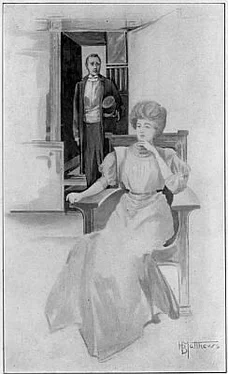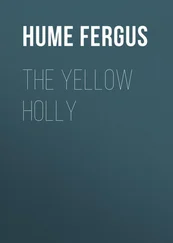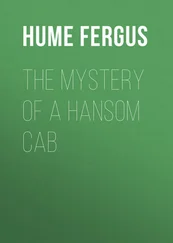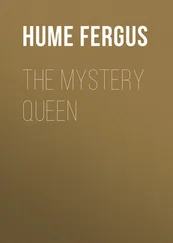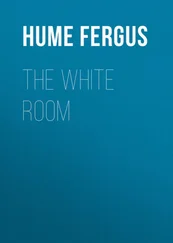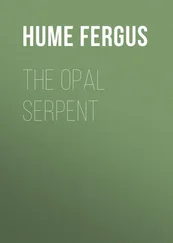Fergus Hume - The Silent House
Здесь есть возможность читать онлайн «Fergus Hume - The Silent House» весь текст электронной книги совершенно бесплатно (целиком полную версию без сокращений). В некоторых случаях можно слушать аудио, скачать через торрент в формате fb2 и присутствует краткое содержание. Год выпуска: 2006, Жанр: Классический детектив, на английском языке. Описание произведения, (предисловие) а так же отзывы посетителей доступны на портале библиотеки ЛибКат.
- Название:The Silent House
- Автор:
- Жанр:
- Год:2006
- ISBN:нет данных
- Рейтинг книги:4 / 5. Голосов: 1
-
Избранное:Добавить в избранное
- Отзывы:
-
Ваша оценка:
- 80
- 1
- 2
- 3
- 4
- 5
The Silent House: краткое содержание, описание и аннотация
Предлагаем к чтению аннотацию, описание, краткое содержание или предисловие (зависит от того, что написал сам автор книги «The Silent House»). Если вы не нашли необходимую информацию о книге — напишите в комментариях, мы постараемся отыскать её.
The Silent House — читать онлайн бесплатно полную книгу (весь текст) целиком
Ниже представлен текст книги, разбитый по страницам. Система сохранения места последней прочитанной страницы, позволяет с удобством читать онлайн бесплатно книгу «The Silent House», без необходимости каждый раз заново искать на чём Вы остановились. Поставьте закладку, и сможете в любой момент перейти на страницу, на которой закончили чтение.
Интервал:
Закладка:
"Are you there?" whispered Mrs. Clear nervously.
"Yes," replied Link in the same tone. "Myself, Mr. Denzil, and two policemen. Keep the man in talk, and find out, if possible, if he committed the murder."
"I hope he won't kill me," muttered Mrs. Clear. "He will, if he knows I've betrayed him."
"That will be all right," said Link in a low, impatient voice. "We will rush out should he prove dangerous. Get over by the window, so that we can see a little of you and Wrent when you talk."
"No! no! Don't leave the door open! He'll see you!"
"He won't, Mrs. Clear. We'll keep back in the darkness. If he shows a light, we'll rush him before he can use a weapon or clear out. Get back to the window!"
"I hope I'll get through with this all right," said Mrs. Clear nervously. "It's an awful situation," and she moved stealthily across the floor to the window.
There was a faint gaslight outside, and the watchers could see her figure and profile black against the slight illumination. All was still and silent as the grave when they began their dreary watch.
The minutes passed slowly in the darkness, and there was an unbroken silence save for the breathing of the watchers and the restless movements of Mrs. Clear near the window. They saw her pass and repass the square of glass, when, unexpectedly, she paused, rigid and silent.
A stealthy step was ascending the distant stair, and pacing cat-like along the passage.
Lucian felt a tremor pass through his body as the steps of the murderer sounded nearer and clearer. They paused at the door, and then moved towards the window where Mrs. Clear was standing.
"Is that you?" said a low voice, which came weirdly out of the darkness.
"Yes. I have been waiting for the last half hour, Mr. Wrent," replied the woman in nervous tones. "I am glad you have come."
"I am glad, also," said the voice harshly, "as I wish to know why you propose to betray me."
"Because you won't pay me the money," said Mrs. Clear boldly. "And if you don't give it to me this very night I'll go straight and tell the police all about my husband."
"I'll kill you first!" cried the man with a snarl, and made a dash at the woman. With a cry for help she eluded him and sprang towards the bedroom door for protection. The next moment the four watchers were in the room wrestling with Wrent. When he felt the grip of their hands, and knew that he was betrayed, he cried out savagely, and fought with the strength of two men. However, he could do little against his four adversaries, and, worn out with the struggle, collapsed suddenly on to the dusty floor with a motion of despair.
"Lost! lost!" he muttered. "All lost!"
Breathing hard, Link slipped back the cover of the dark lantern and turned the light on to the face of the prisoner. Out of the darkness started a pale face with white hair and long white beard. Lucian uttered a cry.
"Mr. Vrain!" he said, shrinking back, "Mr. Vrain!"
"Look again," said Link, passing his hand rapidly over the face and head of the prostrate man. Denzil did look, and uttered a second cry more startling than the first. Wig and beard and venerable looks were all gone, and he recognised at once who Wrent was.
"Jabez Clyne!—Jabez Clyne!" he exclaimed in astonishment.
"Yes!" cried Link triumphantly, "Jabez Clyne, conspirator and assassin!"
CHAPTER XXXI
A STRANGE CONFESSION
"I, Jabez Clyne, write this confession in my prison cell, of my own free will, and without coercion from any one; partly because I know that the evidence concerning my share in the Vrain conspiracy is strong against me, and partly because I wish to exonerate my daughter Lydia.
"She is absolutely innocent of all knowledge concerning the feigned death of her husband and his actual existence in a private lunatic asylum; and on the strength of this confession of mine—which will fix the guilt of the matter on the right persons—I demand that she shall be set free. It is not fair that she should suffer, for I and Ferruci planned and carried out the whole conspiracy. Well, Ferruci has punished himself, and soon the law will punish me, so it is only justice that Lydia should be discharged from all blame. On this understanding I set out the whole story of the affair—how it was thought of, how it was contrived, and how it was carried out. Now that Count Ferruci is dead, this confession can harm no one but myself, and may be the means of setting Lydia free. So here I begin my recital.
"I was always an unlucky man, and the end of my life proves to be as unfortunate as the beginning. I was born in London some fifty and more years ago, in a Whitechapel slum, of drunken and profligate parents, so it is little to be wondered at that my career has been anything but virtuous or respectable. In my early childhood—if it may be called so—I was beaten and starved, set to beg, forced to thieve, and never had a kind word said to me or a kind deed done to me. No wonder I grew up a callous, hardened ruffian. As the twig is bent, so will the tree grow.
"Out of this depth of degradation I was rescued by a philanthropist, who had me fed and clothed and educated. I had at his hands every chance of leading a respectable life, but I did not want to become smug and honest. My early training was too strong for that, so after a year or two of enforced goodness I ran away to sea. The vessel I embarked on as a stowaway was bound for America. When I was discovered hiding among the cargo we were in mid-ocean, and there was nothing for it but to carry me to the States. Still, to earn my passage, I was made cabin-boy to a ruffianly captain, and once more tasted the early delights of childhood, viz., kicks, curses, and starvation. When the ship arrived in New York I was turned adrift in the city without a penny or a friend.
"It is not my purpose to describe my sufferings, as such description will do no good and interest nobody; particularly as the purpose of this confession is to declare the Vrain conspiracy and its failure; so I will pass over my early years as speedily as possible. To be brief: I became a newsboy, then a reporter; afterwards I went West and tried my luck in San Francisco, later on in Texas; but in every case I failed, and became poorer and more desperate than ever. In New Orleans I set up a newspaper and had a brief time of prosperity, when I married the daughter of a hotelkeeper, and for the time was happy.
"Then the Civil War broke out, and I was ruined. My wife died, leaving me with one child, whom I called Lydia, after her, but that child died also, and I was left alone. After the war I prospered again for a time, and married a woman with money. She also died, and left a daughter, and this child I again called Lydia, in memory of my first wife, who was the only woman I ever truly loved. I placed little Lydia in a convent for education, and devoted my second wife's money to that purpose; then I started out for the fifth or sixth time to make my fortune. Needless to say, I did not make it.
"I pass over a long period of distress and prosperity, hopes and fears. One day I was rich, the next poor; and Fate—or whatever malignant deity looked after my poor affairs—knocked me about most cruelly, tossed me up, threw me down, and at the end of a score of years left me comparatively prosperous, with an income, in English money, of £500 a year. With this I returned to Washington to seek Lydia, and found her grown up into a beautiful and clever girl. Her beauty gave me the idea that I might marry her well in Europe as an American heiress. So for Europe we started, and after many years of travel about the Continent we settled down in the Pension Donizetti in Florence. There Lydia was admired for her beauty and wit, and courted for her money! But save for my ten pounds a week, which we eked out in the most frugal manner, we had not a penny between us.
Читать дальшеИнтервал:
Закладка:
Похожие книги на «The Silent House»
Представляем Вашему вниманию похожие книги на «The Silent House» списком для выбора. Мы отобрали схожую по названию и смыслу литературу в надежде предоставить читателям больше вариантов отыскать новые, интересные, ещё непрочитанные произведения.
Обсуждение, отзывы о книге «The Silent House» и просто собственные мнения читателей. Оставьте ваши комментарии, напишите, что Вы думаете о произведении, его смысле или главных героях. Укажите что конкретно понравилось, а что нет, и почему Вы так считаете.
